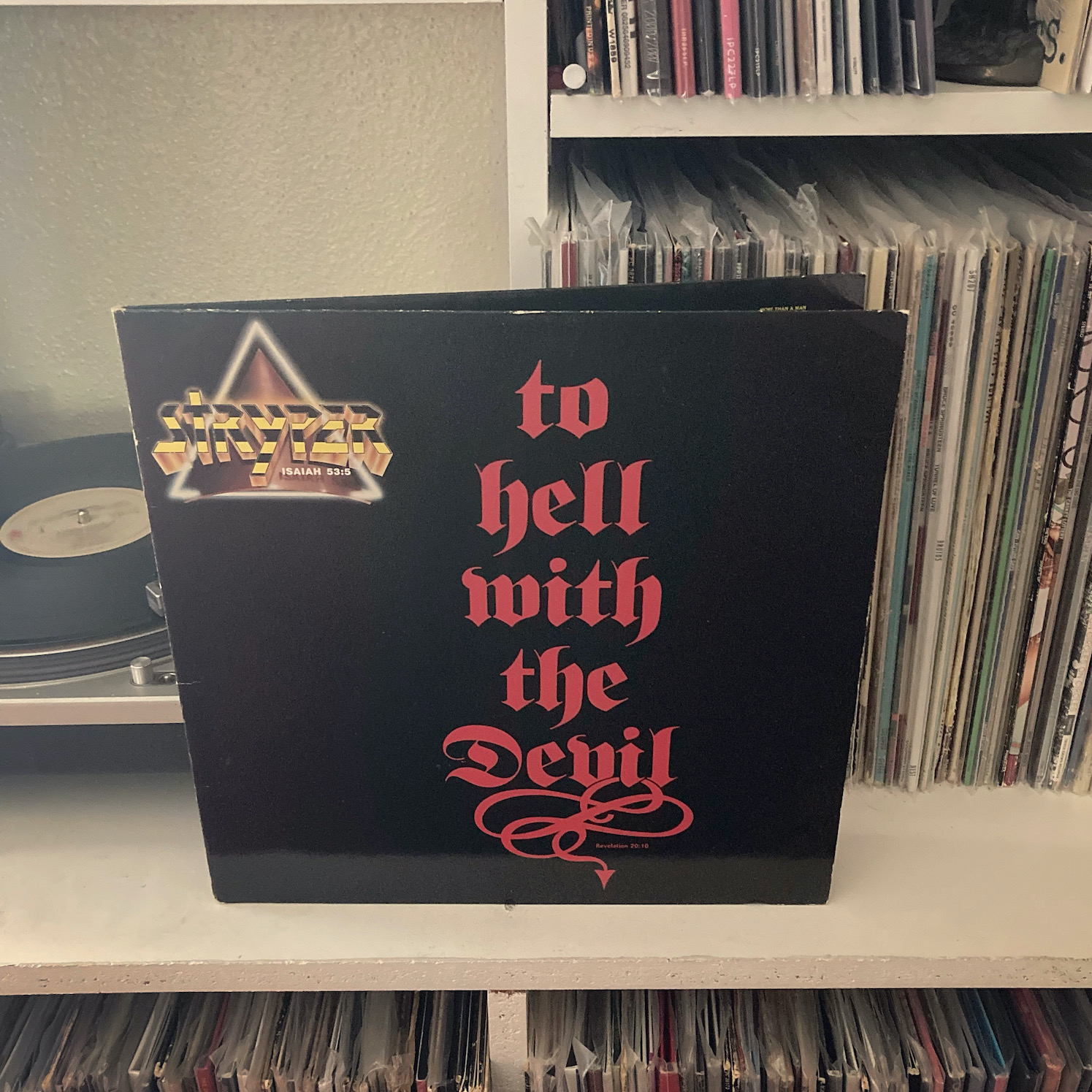
To paraphrase Larry Norman, “Why should the Devil have all of the [heavy metal]?”
Thus is the guiding principle that founded Stryper, who were young Christian rock and roll fans who loved heavy music but hated all of the debauchery and occultism that pervaded much of the lyrics.
It’s certainly not a unique story (see also: Resurrection Band, Petra, Larry Norman again, the Christian music machine in general), but To Hell With the Devil is maybe the most emblematic distillation of the ethos of what Christian metal is. And it does so without compromising on either their Christian faith or their metal riffs.
It worked too: it went Platinum, spawned numerous hits on MTV, and remains one of the most important albums in the genre.
Now, the trick of course is talking about Christian music when I’m not totally sure that the division between sacred and secular even exists. Some of the most spiritual moments of my life have come from listening to “nonchristian” bands. There have been many Christians writing overtly spiritual music outside of the Christian music industry (see: Thrice, Sufjan Stevens) as well as nonchristians who admitted to playing at faith for album sales (see: As I Lay Dying).
Even beyond that, many of the bands writing all of the devil-worshipping heavy metal that Stryper was reacting against (Iron Maiden, Slayer) were actually individuals of devout faith using Biblical imagery with heaps of irony. Even the Satanic odes of Black Sabbath were cleverly disguised Christianity (most overt on “After Forever”).
The other conversation we have to have is the parasitic nature of the Christian music industry in general. While there are plenty of exceptions to the rule, by and large, the Christian music industry is built on culture vultures: artists who parrot trends to offer alternatives to worried parents at the front line of the Culture War. Anyone who was in a youth group in the early 2000s likely remembers a Focus On the Family-provided poster with secular bands on one side and family-friendly, Christian substitutes for those bands on the other (Thrice was famously once included on the secular side of one poster that was distributed at Dustin Kensrue’s own church). What other motivation could inspire a man like Carman to don a baggy hoodie and a rap beat to ask the question “Who’s In the House?”
Stryper may be many things, but inauthentic isn’t one of them. Their devotion to both their faith and heavy metal were steadfast, singing overtly Christian lyrics and fiery glam metal riffs with the same earnestness. Michael Sweet’s voice is one of the most impressive tenors in all of metal, and his guitar interplay with Oz Fox can give any other hair metal band a run for their money. In fact, I know multiple people outside of any church experience who were big fans of Stryper based on the music alone. Whatever their approach was, it worked: this is the first Christian metal record to be certified Platinum, and it would remain the best-selling Christian metal album until 2001 when P.O.D.’s Alive broke that record.
And listening to it, it’s worth every accolade. As much as the title track has become an almost punchline among Christian and evangelical circles (I blame Five Iron Frenzy’s live album for that), it breaks through all the jokes as soon as the opening riffs kick your teeth in. The rest of the album doesn’t pull any punches either. “Calling On You” beats Journey at their own anthemic rock game, complete with some Queen-esque harmonies. “Free” opens with an iconic guitar solo, then shifts modality and mood between the verse and chorus. “The Way” is thrashy and brutal, standing toe to toe with their secular contemporaries. “Sing-Along Song” pushes heavily into glam with a Kraftwerk-y synth line and even Queenier harmonies.
The most earnest moment though is the power ballad “Honestly,” which opens with a dreadfully dated Galaxy piano accompanying Sweet’s falsetto as he extols his own reliability (probably narrating as Jesus?). It gets dangerously close to coming across as a parody of both power ballads and Christian rock, but it’s saved once again by the band’s unflappable earnestness. And at one point in 1987, its video was the most-requested song on MTV (an honor it shares with “Free”).
Three decades after its release, To Hell With the Devil still hits hard. And while I might not totally believe that Christian music exists any more than Christian cooking or Christian plumbing, there’s no denying that it is possible for an overtly Christian band to overcome the cultural issues with the industry and create something that is both spiritually and musically authentic. And To Hell With the Devil is proof.